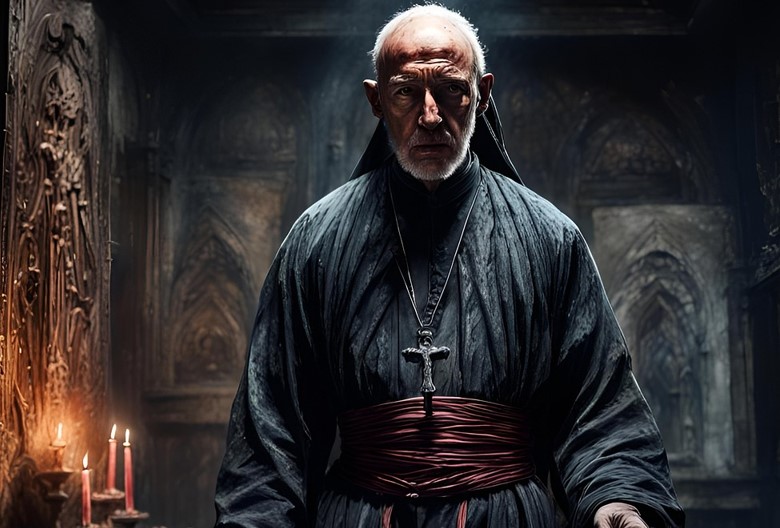
The Madrid Supreme Court (TSJM) has upheld the ten-year prison sentence imposed on a priest accused of sexually abusing two underage altar boys in his parish in the city of Torrejón de Ardoz. The judges decided to replace the crime of sexual assault with the term “abuse,” while upholding the criminal sanction against the priest. This is on the condition that the statements of the two victims are credible and not considered “an orchestrated maneuver” to harm the priest—a claim made by his defense. The priest, who was excommunicated from the priesthood more than a year ago, still has the option of appealing to the Supreme Court.
According to reports by elDiario.es, the priest entered the Santiago Apóstol parish in Torrejón in 2012, and the abuse of one of the altar boys began that same year. During the time he spent alone with the boys in the sacristy, he took advantage of these opportunities to touch or kiss them. The abuse began when one of the boys was 12 and the other 14, and even continued during a parish trip to Jerusalem.
Then-Bishop Juan Antonio Reig Plá only learned of the incidents years later, when the boys, who had not previously known each other, told each other about their experiences and decided to report the matter. The two had similar experiences and eventually turned to the church authorities. Their parents only learned of the incidents when they received several letters from the Ecclesiastical Tribunal of La Rota demanding that they testify in a canonical criminal trial that ultimately resulted in the priest’s dismissal from ministry. Plá then brought the allegations to the public prosecutor’s office, which filed charges against the priest in 2022.
The accused priest has consistently denied the allegations and bases his argument on two central arguments: First, that the boys sought revenge on him because he had treated them very harshly during their childhood. Second, that the courts did not give him the opportunity to adequately defend himself, as alleged witnesses who were supposed to testify in his favor failed to appear, even though he never clearly identified them. He also argued that forensic experts never investigated his claims that he was physically incapable of abusing two minors, despite subsequent complaints.
In a ruling seen by this newspaper, the TSJM decided to uphold the ten-year prison sentence imposed on him by the provincial court at first instance. The other penalties, which do not include imprisonment, also remained in place: a ban on contacting or approaching his victims, a ban on working with minors for seven years, and an obligation to pay each of the two altar boys €2,000 for exploiting his position in the parish and the trust they had placed in him.
The judges are only willing to exchange the conviction for sexual assault for the conviction for abuse, but uphold the conviction. They believe there is sufficient evidence for a conviction, particularly the statements of the two altar boys. The judges also noted that the priest was unable to prove “that everything was the result of a maneuver orchestrated by both young people.” His defense was insufficient to support the belief that the events did not occur.
The verdicts in this case reveal that the convicted priest’s strategy was to question the two victims and portray their joint complaint to the Church as payback for his harsh treatment of them. In his final appeal, he argued that he had been denounced because he had threatened to “inform other priests” that one of the boys had drug problems. He also found it implausible that no one would find out that he had abused altar boys for seven years.
The TSJM confirms what the provincial court has already established: there is no evidence to support the priest’s statements. Far from developing a strategy to harm the priest, the teenagers had not even told their parents about the incidents. They only learned of the investigation against the priest through letters from the ecclesiastical court. The judges emphasize that it is common for sexual crimes to be witnessed only by the victims: “The events took place when the sacristy was closed.”
The fact that it took several years The TSJM explains in its still-appealable ruling that the delay in reporting the incident to the diocese is due to the fact that the adolescents were “entering an age of sexual development” at that time, with one of them even “believing it was normal and a way for the accused to calm him down before going to the Eucharist and before the congregation.”
For years, the courts, particularly the Criminal Chamber of the Supreme Court, have emphasized that delays in reporting a sexual crime do not negatively impact the credibility of victims. The Constitutional Court has held that a victim’s delay in filing a complaint cannot be used to the perpetrator’s advantage in such cases.
The victims, the Madrid Regional Court recalls, “maintained their version of events at all times,” even in the face of the accused’s exculpatory, yet unsubstantiated, version. “There is no false spirit in the victims, and it should not be forgotten that the boys did not say anything until 2020 because of the friendship and trust that existed between the priest and the family of one of the victims.” At the trial in the provincial court, the parents of one of the boys expressed their pain that the person they trusted most, who had even cared for their son during a hospital stay, had abused him.



